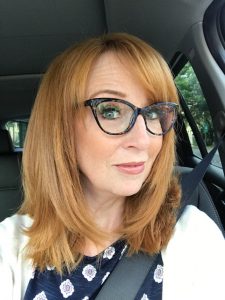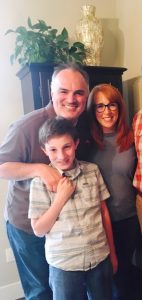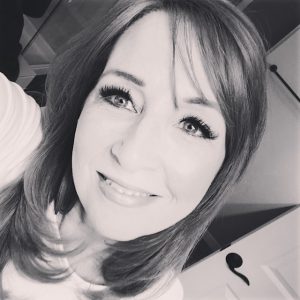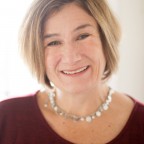Name: Julie Vaughn
Age: 49
Location: Seattle, WA
Recovery Date: February 17, 2016
Recovering From: Prescription opiates
About Julie: Redhead. Bookworm. Meditation fanatic. Person in recovery. Seahawks fan. Music lover. Tree hugger. Choosing the bigger life.
Q. Before you entered recovery, what did you think the “thing” you were addicted to gave you, did for you, etc.?
A. When I first began abusing pills, it was because I was looking for something to take the edge off – of both my parents becoming ill and dying, of the subsequent grief, of trying to manage being the perfect wife, mother, employee, sister, friend, human. Pills made me feel like everything was juuuuuuuuuuust fiiiiiiiiiiiine, even though it was far from fine and getting worse.
Q. Now that you are in recovery, what have you learned about that “thing?”
A. I’ve learned that a temporary escape from sadness, fear, perfectionism is just that – temporary. When I came down from the high, all the stuff I had desperately tried to avoid was still there, and now I had a drug addiction on top of it. I’ve learned that there’s power and freedom and even joy in feeling my feelings, letting myself be imperfect, and facing life honestly.
Q. How are you recovering (e.g., 12-step program, rehab, counseling, on your own, etc.)?
A. On my own, with an amazing and supportive circle of online and real-life friends who are also in recovery.
Q. In recovery, how do you give yourself what you thought that “thing” provided?
A. Meditation has literally changed my life. It helps me to be more self aware, to remain in touch with my core self, to manage my emotions, and to practice acceptance. I’m also a huge proponent of radical self-care – yoga, bubble baths, time alone, a decadent meal, and saying no.
Q. What was your “rock bottom” or “breaking point” when you realized you needed to change?
A. You’d think that going through the agony of withdrawal many times would have done it, but the breaking point for me was when a girlfriend mentioned she had some Oxycontin left over from an injury and my brain went into overdrive trying to figure out how to get my hands on it. Despite having asked friends for pills many, many times in the past, this was the time where something in me said, “Enough. This isn’t right.”
Q. What has been the hardest part of recovery so far?
A. I worry about needing narcotic pain medication if I need surgery or extensive dental work in the future, and how I am going to manage that.
Q. What about recovery has been easier than you had anticipated?
A. Avoiding temptation. Unlike alcohol, you can’t pick up opiates at the store on the way home from work. Once I got through withdrawal and started reaping the rewards of recovery, pills didn’t really even cross my mind, except to be grateful to be free from them.
Q. What has helped you the most in recovery?
A. Meditation, journaling, self-care, radical honesty with myself and others.
Q. Who has helped you the most in recovery?
A. Two of my real-life girlfriends, Bethany and Chelsea, Laura McKowen, and Chris Aguirre from Since Right Now, the first person I shared my story with. Also, my daily gratitude group of other women in recovery.
Q. What has been the biggest surprise about recovery?
A. How great it feels to live this way! I really had no idea how fulfilling it would be to be clear headed, honest, present and engaged and how much my life would be enriched by living like this. My life is not perfect, but it’s pretty damn good. I also didn’t anticipate how freeing it would be to tell my story.
Q. What role has family played in your recovery?
A. I used in secret, so my family had no idea I’d been suffering. After I came clean (pun intended) they stood by me and haven’t stopped.
Q. Knowing what you do now, what would you tell your pre-recovery self about recovery?
A. Don’t be scared! There is so much more waiting for you on the other side.
Q. What would you say to someone who is thinking about recovery?
A. DO IT – it will transform your life in ways that you cannot fathom.
If there is anything else you want to add, please do …
Thanks for the opportunity, Laura, and for your voice in the recovery space.




